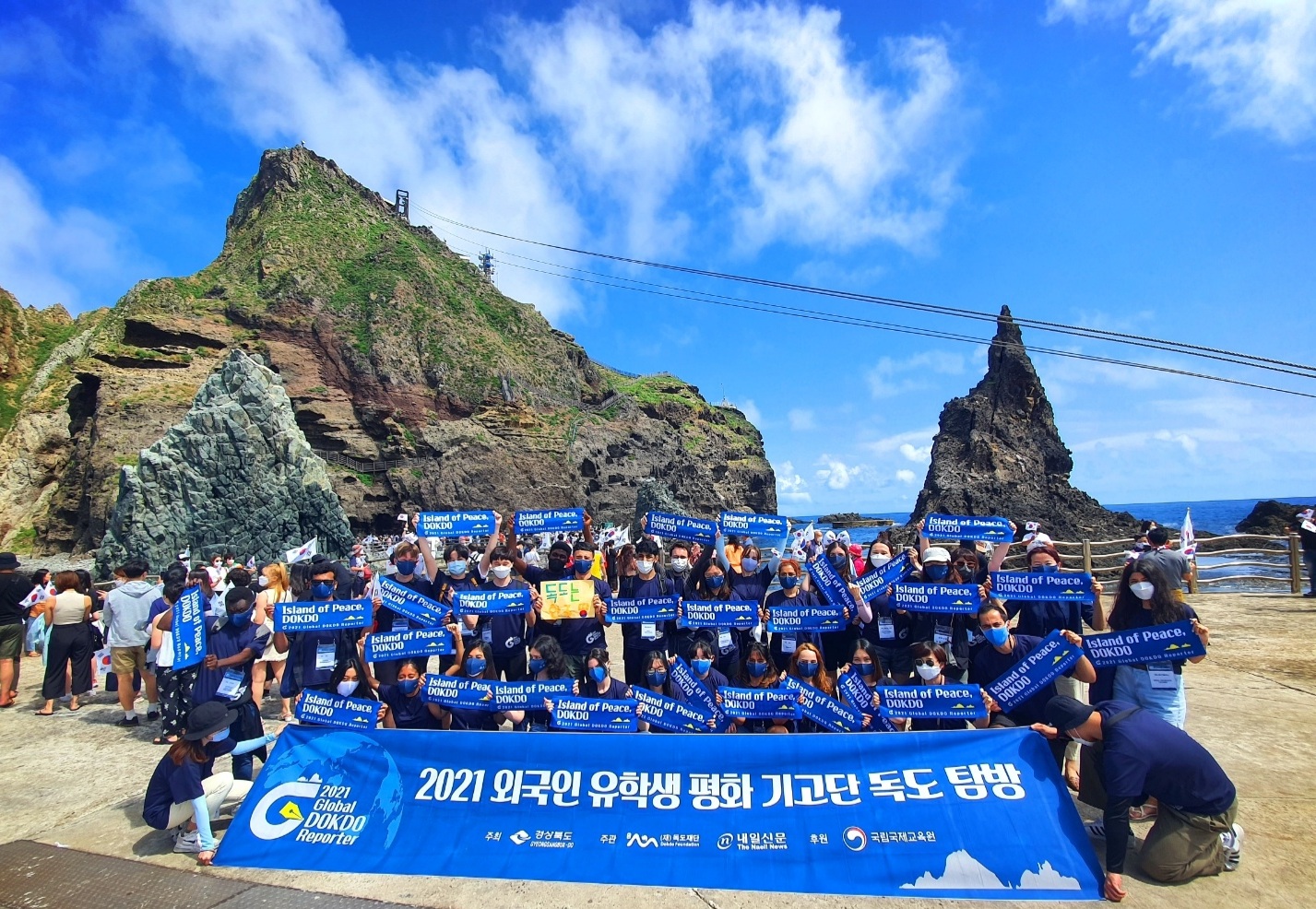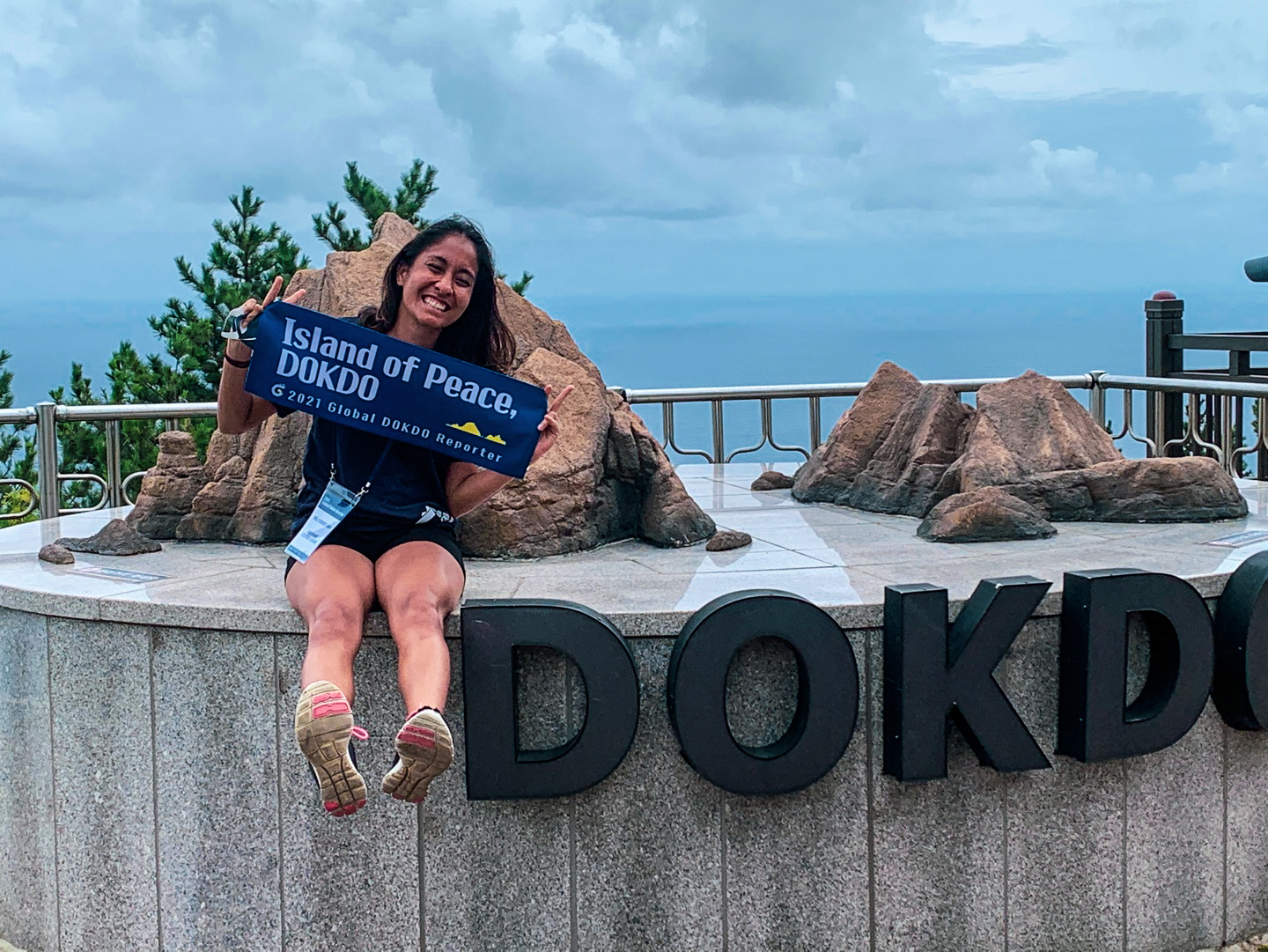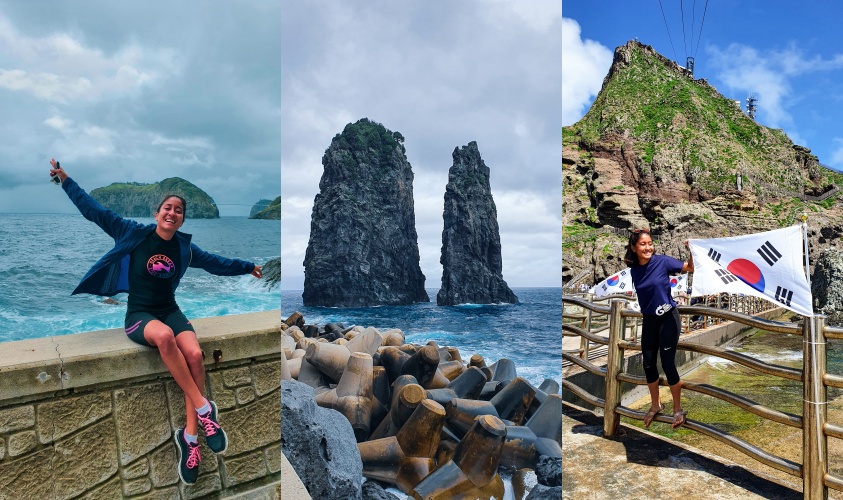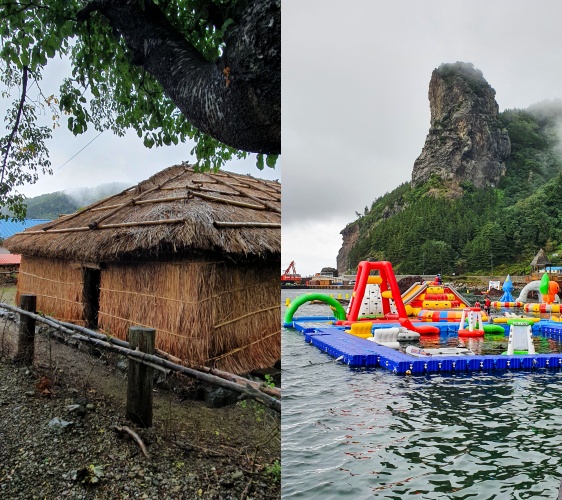- 한국어
- English
- 日本語
- 中文
- العربية
- Español
- Français
- Deutsch
- Pусский
- Tiếng Việt
- Indonesian
By Honorary Reporter Marianne Chang from Trinidad and Tobago
Photos = Marianne Chang, Dokdo Foundation

Thanks to the 2021 Global Dokdo Reporters Program, I recently visited the Korean islands of Ulleungdo and Dokdo. The latter requires a 90-minute ferry ride from the neighboring Ulleungdo, which sits approximately three hours from the coast of the Korean mainland.
Each visitor group is allowed to stay 20 minutes on Dokdo to prevent overcrowding as other ferries filled with passengers are not far behind. Despite inclement weather, we still enjoyed water sports, coastal drives, gorgeous sunsets and sunrises, and delicious food on the island. Ulleungdo is well-known for its pumpkin and squid that are on every dish, while Dokdo is famous for its biodiversity with many species of plants and animals.
As part of the program, we shared our thoughts on Dokdo. The following are excerpts from my essay on the Dokdo issue arising ahead of the 2020 Tokyo Summer Olympics.

The writer holds a banner given to her by the organizer of the 2021 Global Dokdo Reporters Program.
Korea maintains de facto control over Dokdo, which has one Korean resident protected at all times by the military. Before the pandemic, tourists regularly visited the island through a stopover in the neighboring Ulleungdo. Japan has no access to the territory and instead resorts to other ways of claiming the island, like declaring a public holiday for it.
Japan's claim stems from a public notice posted by a provincial government to claim the island as Tokyo insists that the U.S. considered the island Japanese territory under the San Francisco Peace Treaty of 1951. This is false, however, and Korea has strong evidence from old maps and documents to refute Japan's claims. Dokdo was taken over by Japan during the latter's imperialist period but returned to Korea thereafter.
Japan also eyes Dokdo due to interests in national security, fishing and natural gas extraction. Based on my research, the evidence largely favors Korea as the rightful owner of the island. Germany in the past fought Denmark, Poland and France over territorial claims but peacefully resolved them. This could serve as a benchmark for Japan. Mediation by an international body such as the United Nations could bring about more effective negotiations. Settling the matter legally is no guarantee of immediate peace between the countries, but could be a good start to a more unified Asian continent.

The photos on the left and center showcase the coast of Ulleungdo and the one on the right is of Dokdo.
This year, Japan on its official maps indicated Dokdo as Japanese territory ahead of the 2020 Tokyo Summer Olympics, fueling outrage from the Korean government. Complaints filed with the International Olympic Committee (IOC) and the Japanese government fell on deaf ears. The IOC quickly exited the situation by backing Japan's claim that the designation was a purely topographical representation with no political agenda.
A few weeks before the Olympics, there was talk of a boycott of the Games by Korean athletes. This, however, would've negatively impacted the hardworking athletes and unfairly drag them into this row. Alternatively, Korean athletes could have worn jerseys highlighting the Dokdo issue to raise global awareness of the situation. But this would need IOC approval, and judging by its unwillingness to get involved as a neutral party, the committee would've most likely deny the request.
For the 2018 PyeongChang Winter Olympics, Korea accepted Japan's request to remove Dokdo from the reunification flag of the Korean Peninsula, and Tokyo was expected to reciprocate this gesture. Despite this, Korea again took the high road to not worsen the situation at an international event in the spirit of the Olympics.
The two Koreas are divided on many things, but have solidarity when it comes to Dokdo, with both sides expressing outrage over the issue.
Seoul has also repeatedly rejected Tokyo's request to mediate on the island through the International Court of Justice (ICJ). The ICJ has successfully mediated disputes, but Korea said that under international law, Dokdo historically and geographically is its territory, thus there is no need for the ICJ for this.
The Tokyo Olympics has shown again that Japan will continue provoking Korea until a final decision is made by a court. From Seoul's perspective, the ICJ option is an unnecessary risk as court rulings can be unpredictable but could also offer a solution to this problem.

Left is a photo of a tumakjip (thatched roof) home on Ulleungdo and right shows water sports on the island.
kalhong617@korea.kr
*This article is written by a Korea.net Honorary Reporter. Our group of Honorary Reporters are from all around the world, and they share with Korea.net their love and passion for all things Korean.